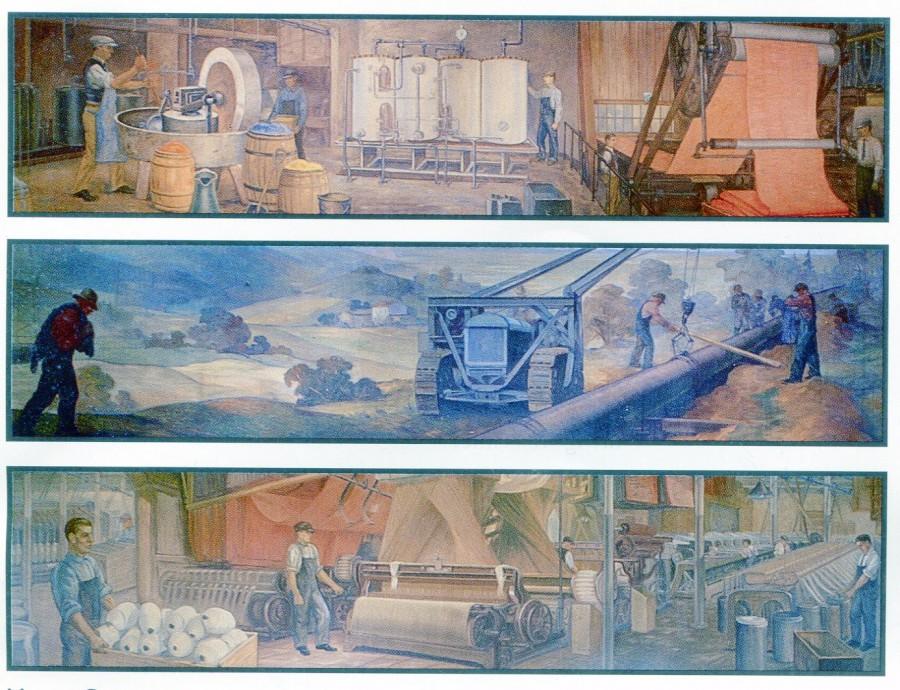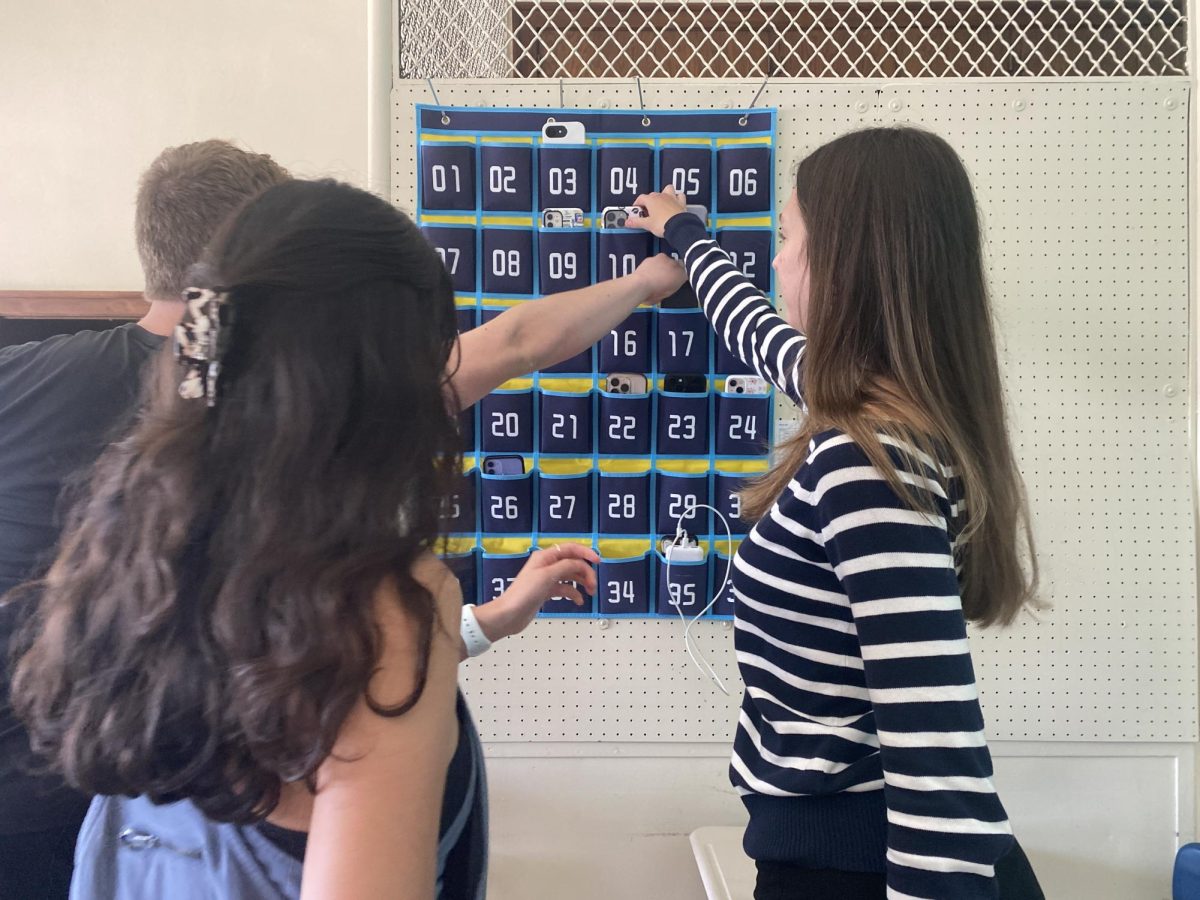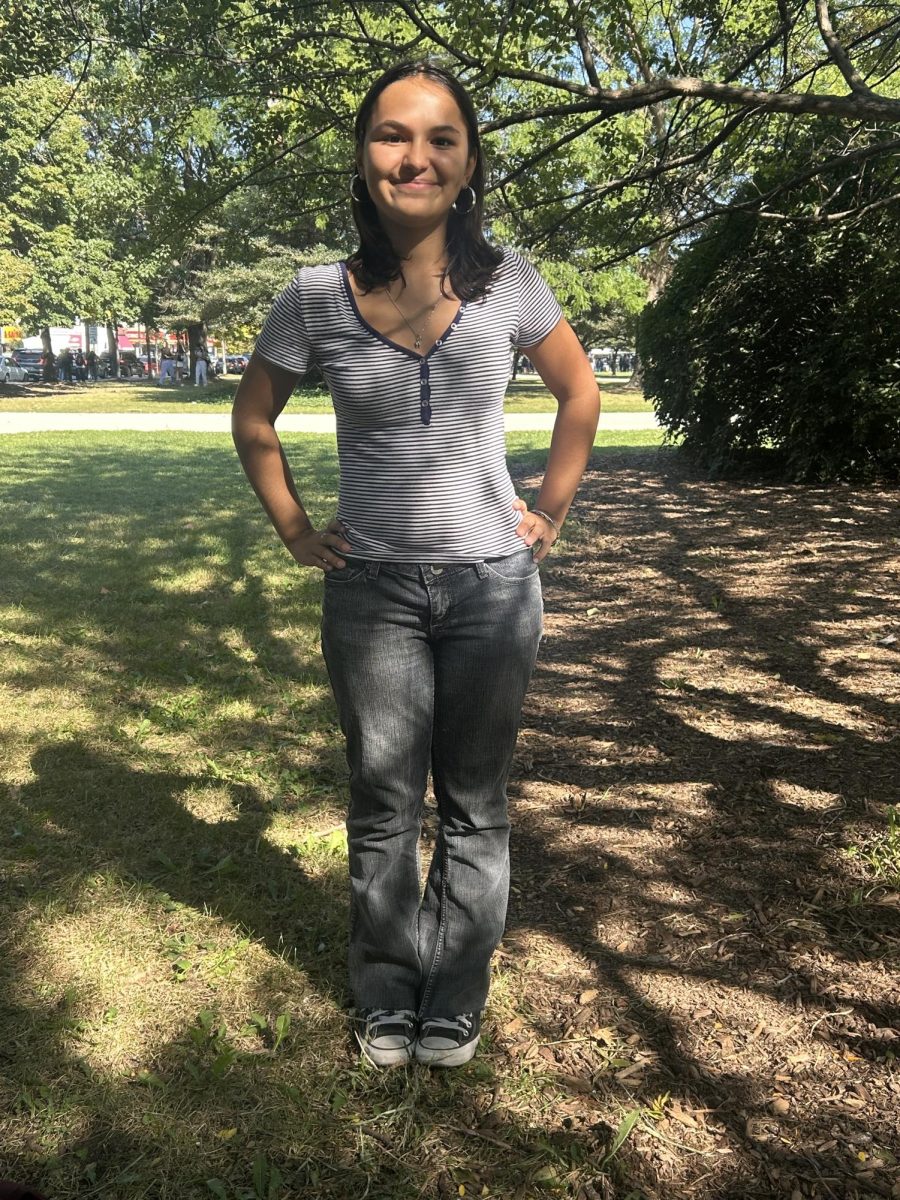By Cecilia Hernandez & Alexandra Madsen
Anna Gaspar walks through the Lane Tech hall and admires the famous murals on Friday, Oct. 4. Although the school has changed some, the murals have remained a permanent fixture on Lane’s walls for over 50 years.
A few of the murals were done by her father Miklos Gaspar, a famous Hungarian painter in the 1930s. Mr. Gaspar came from Hungary with little English and knowledge of the country. During the Great Depression, he was hired to paint murals celebrating the Chicago’s Second World’s Fair called the Century of Progress; the murals showcased new products and technologies of the day.
Years later, Mr. Gaspar passes away from kidney problems. His daughter Anna Gaspar, who was 11 at the time, has little recollection of her father, other than the short time she spent with him at dinner. Anna Gaspar grew up in a very “European household” as she says.
“When you’re 11 you don’t know anything; you go to school and do the things your told.” Ms. Gaspar said. “I didn’t get to see my father because he was at his studio in the backyard always painting. He was basically a stranger to me.”
Gaspar came to Chicago for a high school reunion, and decided to visit Lane and the murals. She came to also meet Kathleen Gross, Div. 751, a Lane student with whom she had been corresponding over email for weeks. Gross was working on a History Fair project based on the murals at the time and found a link to Gaspar’s email. She emailed her for an interview as a primary source and the two kept emailing back and forth. Gross gained a lot from learning about who Ms. Gaspar was and how she grew up.
Ms. Gaspar’s childhood was different from most. Because of her father’s strict work schedule, Ms. Gaspar had little to say about the time she spent with him. She was closer to her mother and family friend Don Rubovits. Rubovits could see the difference in the way she lived her life with her family compared to that of his own. Rubovits accompanied Gaspar to Lane to visit the murals.
“Even from a young age, I could see the difference in the ways I was raised from the way she was. Anna’s family was very strict,” Rubovits said. “A lot was required of her and she didn’t have much freedom.”
Gaspar was expected to do her homework, go to school, and practice her music and art. Due to her father’s profession, she grew up with art surrounding her life. She herself took art classes at the Art Institute of Chicago for many years. She later attended Northwestern University where she obtained her Bachelor’s degree in education.
“For 32 years, I taught elementary school for the Los Angeles city school system.” Ms. Gaspar said. “And when I stopped teaching I went into the Peace Corps.”
Ms. Gaspar traveled to many countries during her time teaching in the Peace Corps. Her main assignment was opening a resource center in South Africa for teachers, to help them learn English and other subjects they did not know.
“It was amazing. I think everyone should travel abroad in their lives,” Ms. Gaspar said. “When you grow up, before your married and have kids, you need to travel and go everywhere. Because after you really can’t do it very much.”
Gaspar’s life has been everything she has wanted it. For Gross it was a great experience getting to meeting her.
“I think she was a very valuable resource as a person and for my project,” Gross said, “But she was also a very nice women being able to get to know. She was really excited about coming and [felt] proud of her father’s murals.”





